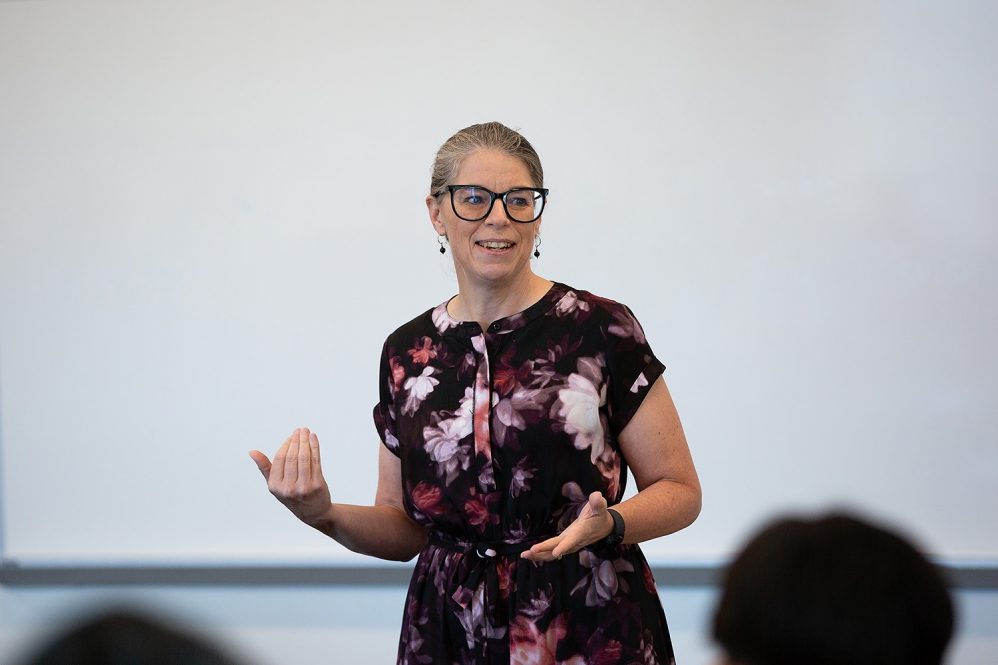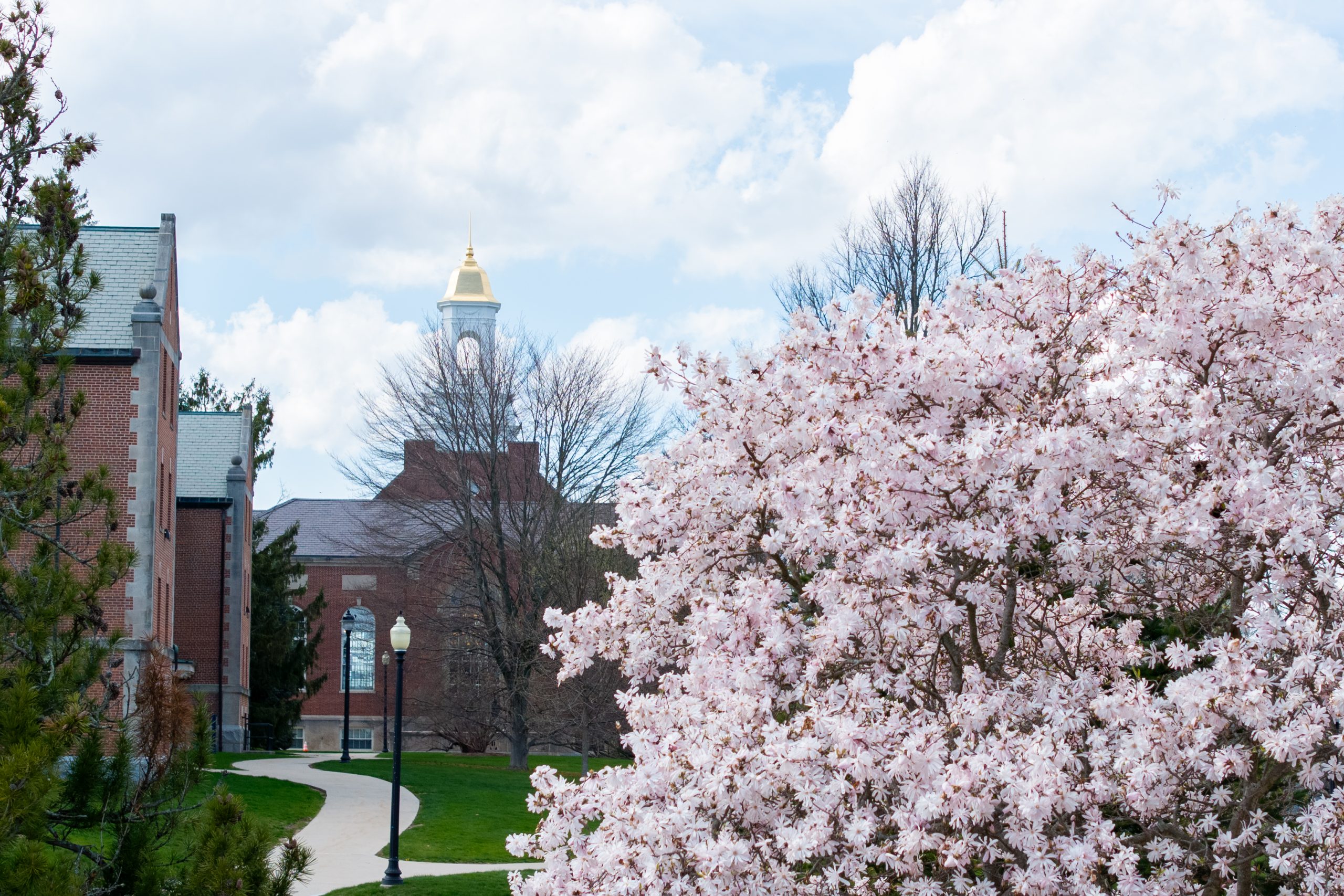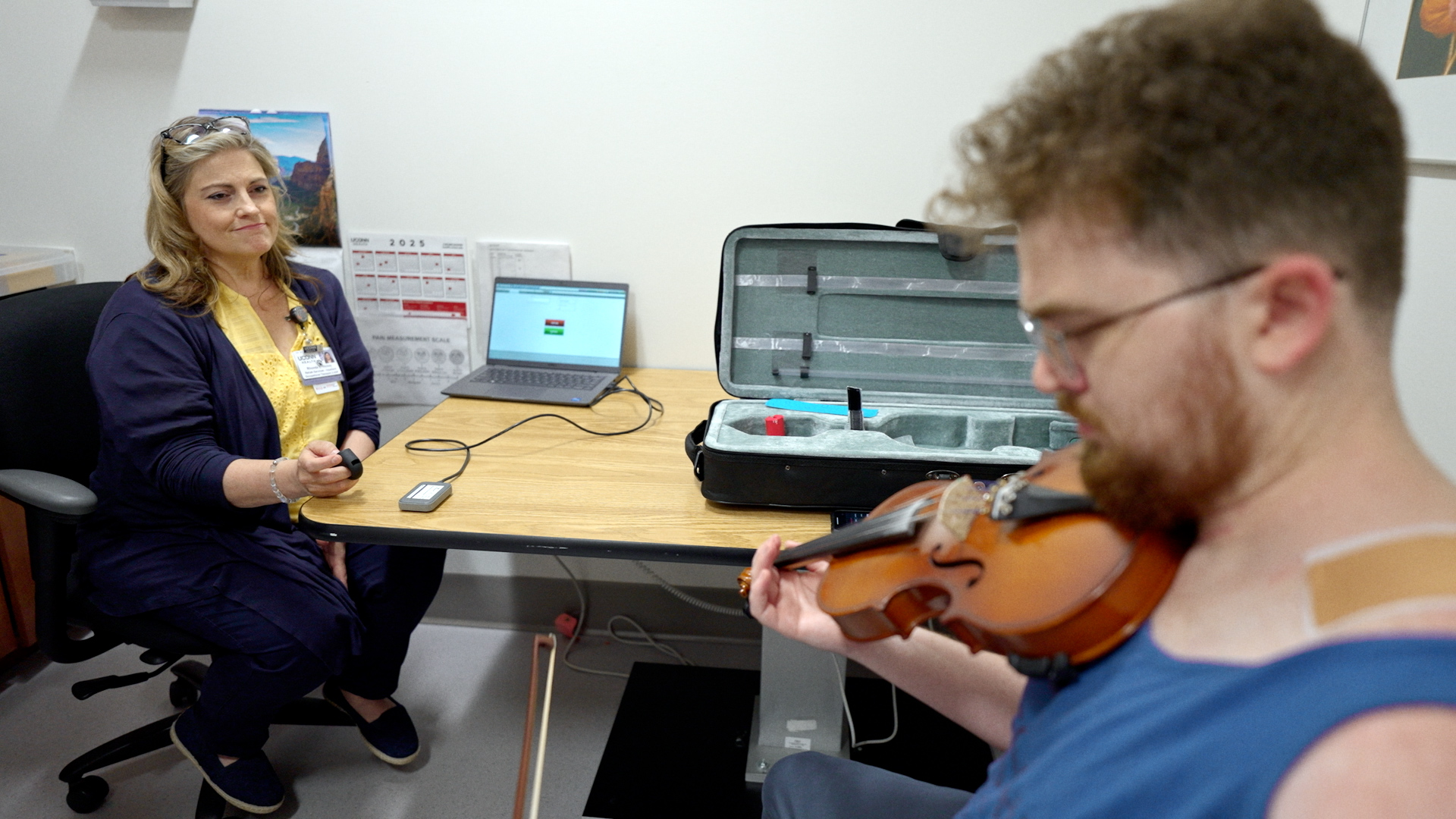How do you like Hartford so far?
I’m living in downtown Hartford, and I really love it. I walk 10 minutes to the office here, and it’s a lovely walk with tons of activities. When I’ve walked home on Thursdays, there’s been a jazz band across the street. That’s wonderful. I’m from Omaha, Nebraska, so my whole geographical reference system is such that you need to drive eight hours to really get anywhere, because Nebraska is huge. My family and I do a bicycle ride across Nebraska every year, which gives you a real sense of the vastness of the space. There are some parts of Nebraska with huge open spaces, you know?
For me, coming here is such a huge change. Not only can you get somewhere in an hour and a half, but the density of the landscape is different, and it’s really exciting to experience that change.
But on the other hand, there are some interesting similarities with where we came from.
There’s this ‘Nebraska nice’ thing: you walk down the street in Omaha, and people say hello to you. I feel that way about Hartford too. When I walk to and from the office, people pass by and say hello to each other. People are interested in downtown Hartford and really enjoying it, including a lot of our students who live downtown as well.
What drew you to this position? What drew you to the School of Public Policy here?
Mostly the diversity of programs. It really feels like there’s a lot going on. We have amazing academic programs like the Master’s of Public Policy, the Master’s of Public Administration, and the MPA Fellows. We have a certificate in nonprofit management, and hopefully, we’re going to be starting a master’s in nonprofit management soon. We’re in the final stages, which is really attractive to me as someone who works in nonprofits and philanthropy.
And the Institute for Municipal and Regional Policy, a research institute within our School that focuses on municipal and regional policy, is amazing. They are doing really important policy work with the state. I was really excited to hear about their work during my interview.
We also do so much directly for leaders in the community, like we have these amazing noncredit programs like Encore and the Public Service Executive Leadership Collaborative.
So UConn was very attractive to me because of these programs and their approach to expanding, innovating, and meeting community needs.
How does the UConn School of Public Policy compare to other programs around the country?
I’m really impressed with our internship program, or IPP program. All of our MPA and MPP students, who are typically early in their careers, do paid internships in the community. That’s amazing and very strong. We have significant community support and engagement with local government, state government, and nonprofits. There aren’t many schools with our level of paid internship opportunities for students.
And the result is that our alumni move into jobs in the state, which means they are everywhere in Connecticut. They are in prominent positions in local and state government and nonprofits. That’s great for not just our students but for the state!
What do the faculty in your department study for their research?
A lot of our faculty’s work involves understanding how policies impact people in different areas, like social and education policy and criminal justice. Some colleagues focus on budget and finance, while others work on how policies are implemented or affect organizations.
There’s a connection between how people are impacted by government policies and programs and the management practices of organizations.
Are there any misconceptions about your program?
Sometimes people wonder what the difference is between public policy and political science. Public policy and administration focus more on people who are not elected but are appointed and work within government or nonprofit organizations. In contrast, political science tends to focus on elected officials and their processes.
We are mostly a graduate program, but we also have fast-track students who are undergraduates working on their master’s. We also have a minor in public policy. This semester, I’m teaching Intro to Public Policy 1001 for freshmen. This class introduces them to public policy and meets a social science requirement. That’s really fun for me to teach.
Why is it useful for a student who’s not going into public policy to take your classes?
Every student should take our Public Policy courses because public policies impact our lives daily. We’re all impacted by public policies, right? How we get around, where we go to do our shopping, where we live, what services are in our areas, where we go to school and how we go to school, and pretty much every area of our lives is impacted by policy decisions that were already made or will be made. So awareness of how government structures create and influence policies is crucial. Understanding how to be civically engaged and influence policies is valuable for everyone.
Can you talk a little bit about your research?
My work generally focuses on the role of nonprofit organizations, philanthropy, and governance in public service. Over the decades, local, state, and federal governments have increasingly relied on nonprofits and philanthropy to perform what we once considered government functions. For example, in Omaha where I just came from, philanthropists have taken on tasks like building bike infrastructure, which could be seend as a government responsibility.
Philanthropists can have a really large influence on policy – think of someone like Bill Gates. They have significantly influenced policies, but sometimes in problematic ways.
I’m interested in the implications of this shift for democracy and equity. I’ve been mapping out research in the nonprofit field, especially critical theory-informed approaches, to reimagine our field.
What’s the next big thing in public policy and administration research?
Technology, especially AI, will significantly impact how we serve constituents and make decisions. For example, using big data for decisions can perpetuate biases. The global climate crisis is another critical issue that needs more attention. Additionally, criminal justice reform, including work being done at IMRP, is a vital area with potential to influence the country.
What’s your favorite place on the Hartford campus?
I love the Hartford Times building so much. It’s absolutely beautiful, and I love the atrium. But I love everything around this campus too. The [Wadsworth Atheneum] museum, City Hall, the ‘Stegosaurus’ sculpture. I really love that we are in the middle of Hartford, in the community, doing work with the community.
This Q&A is part of CLAS Visionary Voices, a series highlighting the College’s new academic leaders and their innovative visions for education, research, and outreach at UConn.



